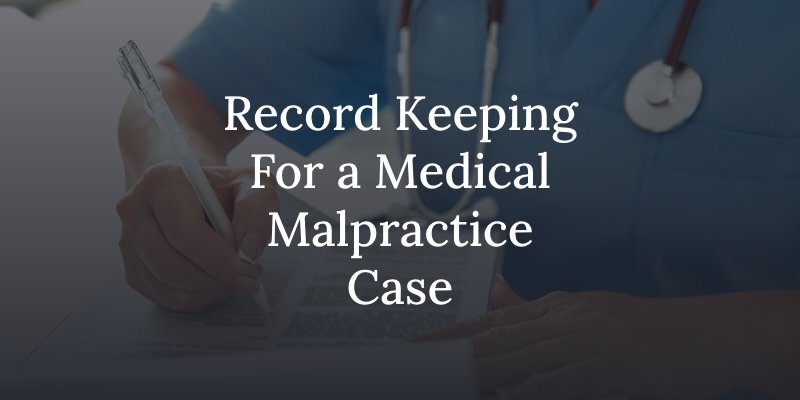Suffering a worsened medical outcome, injury, or adverse medical condition due to a doctor’s malpractice is devastating, especially since we place our lives in the hands of our doctors and other medical providers. When a doctor makes an error during surgery, misdiagnoses an illness, delays diagnosing a disease, or misses a diagnosis completely, it’s medical malpractice, with potentially deadly or disabling consequences. Although a medical malpractice claim against the negligent provider doesn’t erase the harm, it provides a sense of justice to the victim through financial accountability for their economic and non-economic losses. The first step toward a successful claim is to understand the following documents you’ll need to support a medical malpractice case.

Your Medical Records From Before, During, and After the Malpractice Occurred
Medical records are the key to successfully proving that a doctor or other medical provider committed medical malpractice. It’s crucial to obtain the following medical records to support your claim:
- The complete medical records and the physician’s notes from the facility where the medical malpractice occurred
- Your general practitioner’s medical records from the latest complete physical assessment before the malpractice
- Medical records from a physical examination by a trusted doctor (unassociated with the medical facility where the medical malpractice occurred) after the malpractice
- Any imaging test results, lab test results, and prescription records
- Any written correspondence between you and the medical provider or facility
All documents related to your medical condition and care from before, during, and after the malpractice occurred are key evidence to prove that malpractice occurred and its impact on your health.
Medical Bills and Receipts
Proving the economic impacts of the malpractice is as vital to a successful claim as demonstrating the physical impact of the malpractice on your health. Documenting the economic costs of the malpractice requires copies of all medical bills, rehabilitative therapy bills, medical invoices, and receipts, including receipts for out-of-pocket expenses.
Insurance Documents
Most patients use their private medical insurance, Medicare, or Medicaid coverage to pay for their medical care. It’s important to keep copies of all insurance records, explanations of benefits (EOB), and all communication between you and the insurance company. These are key documents required for a successful medical malpractice claim.
Key Expert Opinions
Proving medical malpractice often requires consultations with medical experts to evaluate the circumstances, interpret medical terminology, and provide an expert opinion on how the medical provider failed to meet the standard of care expected within the medical community. A medical malpractice victim’s attorney reaches out to trusted medical experts for key testimony.
Employer Statements and Income Records
Proving the effects of medical malpractice on your ability to work is necessary to recover compensation for the earnings lost due to your medical treatment and recovery time, or the permanent impact on your earning ability due to disability or impairment resulting from the malpractice. Tax statements showing your typical weekly income and employer statements showing lost work days and the impact of the worsened medical outcome on your ability to complete work tasks provide invaluable evidence of economic losses.
Eyewitness Testimony and Pain Journals
Finally, key documentation showing the physical and emotional impact of the harm caused by the medical malpractice is beneficial to a claim, helping the malpractice victim to recover compensation for non-economic damages like pain and suffering, PTSD, anxiety, depression, and chronic pain. Eyewitness testimony from family and friends and a written daily journal documenting pain levels and medical appointments provide critical documentary evidence in a medical malpractice case.
How Can a St. Louis Medical Malpractice Lawyer Help?
Gathering key documentation for a medical malpractice claim is one of many crucial considerations in successfully obtaining the maximum compensation available to you. Contact Miller & Hine to learn more about your rights and options for financial recovery, allowing you to focus on your physical recovery.

